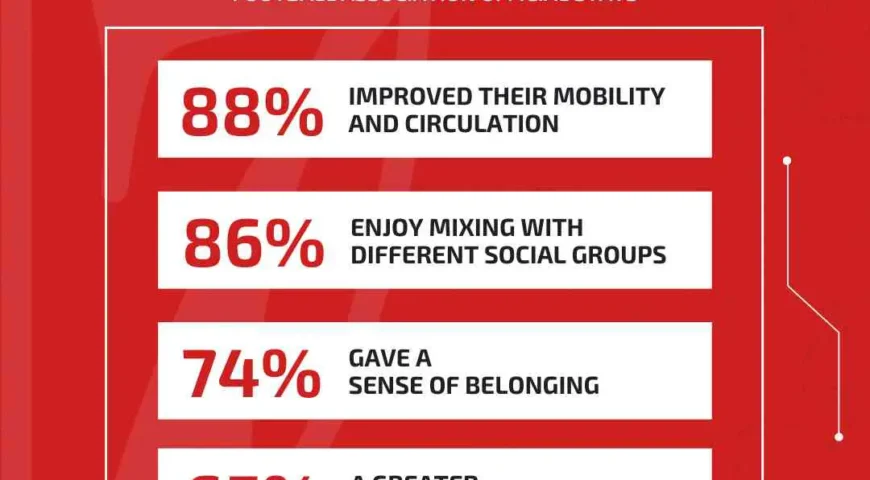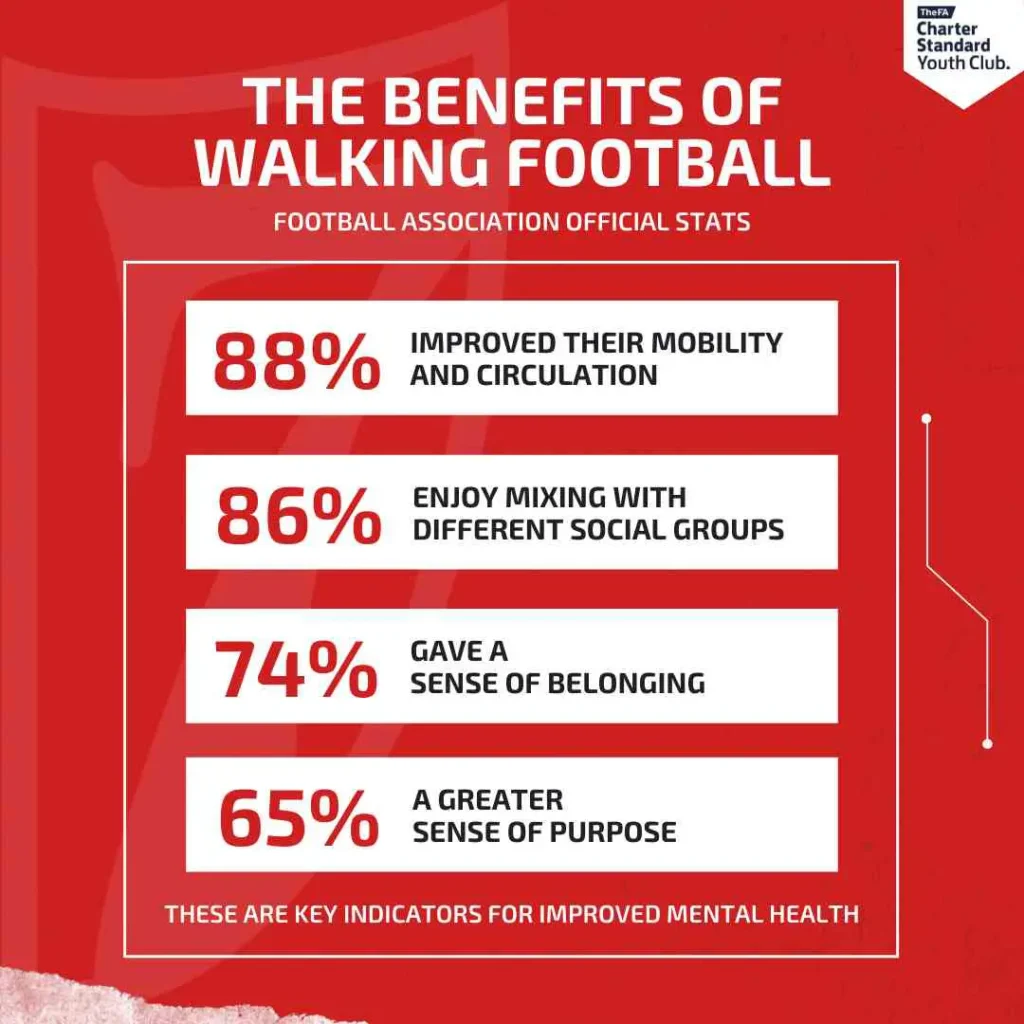
Blog: The benefits of walking football
Our parents all remember when they were young, right? Those trials for Crystal Palace and Tranmere, the dodgy knees that ended Premier League dreams.
Were they really cheated out of a career in professional football? In some cases, absolutely yes.
In others? Maybe FIFA on the PS4.

As our parents (they’re the ones who ferry players to and from training) get older, walking football is playing a key role in the health of the nation.
So why is it so important for our players – in their prime, on the cusp of a career – to tell their parents about walking football?
Mom and dad might have missed the boat for Sunday league, but walking football isn’t just about banishing the belly. It’s so much more.
Belonging. Mobility. Even mental health.
Take a look at some of the responses in the Walking Football Association’s latest State of the Game survey.
“The regular contact with my team-mates is invaluable in making me feel better.’
“The friendship and camaraderie from being involved with walking football is of huge importance and helps immensely with regard to things like depression.”
“WF helped me after lockdown, not through playing, but keeping in touch with team mates on our clubs Whatsapp group.”
Recognise some of those?
Although walking football is primarily designed for players over 50, the benefits of playing the game stay the same.
Of course, the other health benefits are huge.
“Simply being able to play football gives one a happiness not found anywhere else.”
“I was Type Two diabetic and overweight. Since starting walking football, I have lost 4 stone and declared free from Type Two diabetes”.
And how many said walking football is a highlight of their week? 100%. Quite a stat, that.
In the Football Association’s own survey, meanwhile, 88% of those asked said walking football had improved their mobility and circulation, while 86% enjoy mixing with different social groups.
74% of players said walking football has given them a sense of belonging and 65% a greater sense of purpose.
These are key indicators for improved mental health.
Walking football is often casual – there’s not always a qualified referee and teams can be made up from whoever turns up.
But that’s the beauty of it. Players just get out of their car (once they’ve dropped you off at training) and play a bit of football.
Mom and dad may well have been a prospect in their day and yes, injury might have played a part.
But walking football could be a way back into the game they’ve always loved.
Don’t let them forget it.
Find out more here: https://thewfa.co.uk/wp-content/uploads/2020/09/WFA-Survey-Results-Sept-2020.pdf


